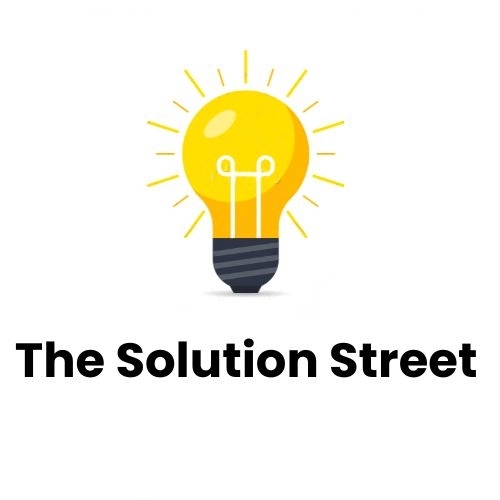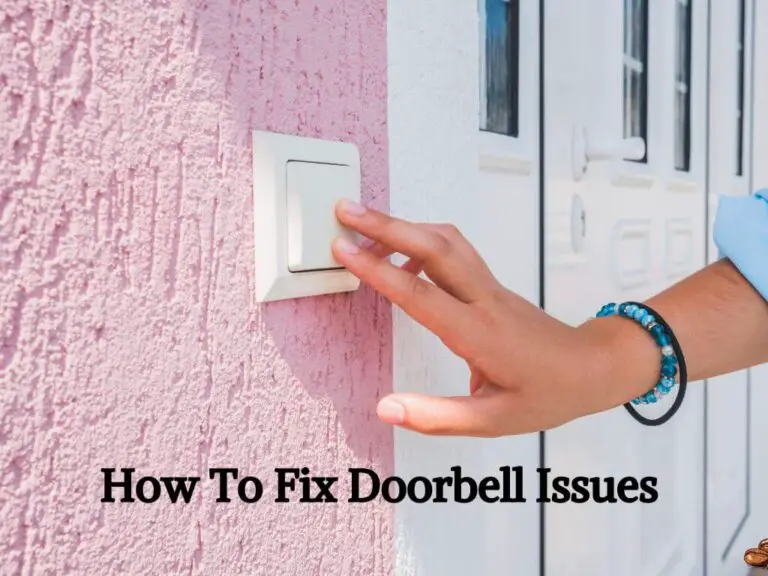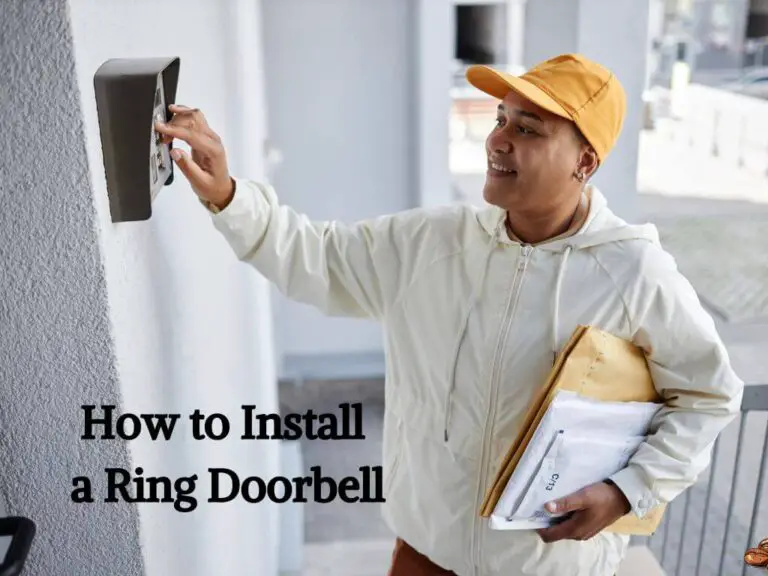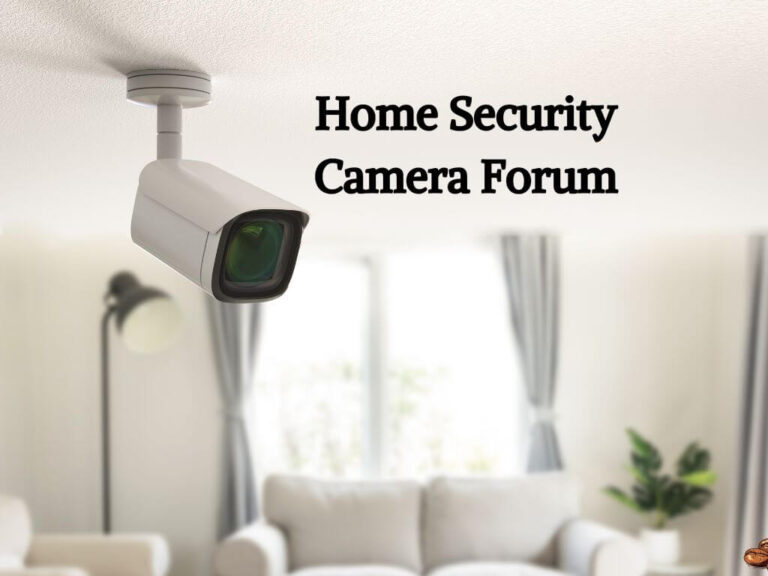Our homes are our sanctuaries, places where we feel safe and secure. But let’s be honest, the world isn’t always sunshine and rainbows.
Imagine coming home to a broken window and the unsettling feeling of not knowing if something was taken. A home security system might be the extra layer of protection you need for peace of mind.
Impact-Site-Verification: 315e9818-fc49-447b-ac1a-0a9976fae40a
Impact-Site-Verification: 315e9818-fc49-447b-ac1a-0a9976fae40aHowever, before you jump into signing a contract, it’s important to weigh the pros and cons to see if a security system is the right fit for you.
In this post, we’ll explore both sides of the coin to help you decide if the benefits of a home security system outweigh the drawbacks.
We’ll delve into the peace of mind a security system can bring, its effectiveness in deterring crime, and the convenience of remote monitoring. But we’ll also be upfront about the costs involved, the possibility of false alarms, and the limitations of these systems.
By the end, you’ll be armed with the information you need to make an informed decision about keeping your castle secure. So, grab a cup of coffee, settle in, and let’s explore the pros and cons of home security systems.
Pros of Home Security Systems: Peace of Mind and More
Let’s dive right into the good stuff! Here’s why many homeowners choose to invest in security systems:
Enhanced Peace of Mind:
Security systems offer a powerful antidote to anxiety, especially when you’re away from home or sleeping soundly. Imagine enjoying a well-deserved vacation knowing your home is under watchful eyes (or rather, sensors!).
Many systems offer 24/7 monitoring, so even if something happens in the middle of the night, help is just a button press away. This sense of security can be invaluable, allowing you to relax and focus on what matters most.
Powerful Deterrence:
Intruders are far less likely to target a home with a visible security system. Security signs, flashing lights, and window stickers act as a deterrent, sending a clear message to would-be burglars that your home is not an easy target.
Studies have shown that homes with security systems are significantly less likely to be broken into.
Fast Response and Monitoring:
Monitored security systems go beyond simply sounding an alarm. In the event of a break-in, fire, or even a medical emergency, the system can automatically dispatch emergency services.
This can minimize damage and ensure help arrives quickly, potentially saving lives and valuables.
Remote Monitoring and Control:
Gone are the days of wondering what’s happening at home when you’re away. Many modern security systems allow you to remotely monitor your property through smartphone apps and cameras.
This lets you check in on pets, see who’s at the door (even if you’re not there!), and even control lights. It’s like having a virtual window into your home, offering an extra layer of security and convenience.
Potential Cost Savings
While the initial cost of a security system might seem like a significant investment, it can actually lead to long-term savings. Many insurance companies offer discounts on homeowners insurance premiums for homes with security systems.
These discounts can range from 5% to 20%, depending on the provider and the specific features of the system.
Essentially, the upfront investment in a security system could be offset by the lower insurance premiums you’ll pay over time. Of course, it’s always a good idea to check with your specific insurance company to see what discounts they offer for security systems.
The Other Side of the Coin: Cons of Home Security Systems
Security systems offer a compelling set of benefits, but it’s important to consider all aspects before making a decision. Here’s a look at some potential drawbacks:
Upfront Costs and Ongoing Fees:
Let’s be honest, security systems aren’t exactly budget-friendly. There’s the upfront cost of equipment, which can vary depending on the features and the number of sensors you need. Then there are ongoing monitoring fees, which can add up over time.
However, some homeowners insurance companies offer discounts for homes with security systems, so it’s worth checking with your provider to see if the savings might offset some of the costs.
The False Alarm Fiasco:
No one enjoys the ear-splitting shriek of a security alarm, especially not at 3 am. Unfortunately, false alarms are a reality with some security systems.
Accidental triggers from pets, faulty sensors, or even strong winds can lead to these embarrassing and potentially costly situations (some cities fine you for repeated false alarms).
Choosing a reputable system with reliable sensors and proper installation can help minimize false alarms.
Contract Lock-in:
Some security companies require multi-year contracts. While these contracts might offer lower upfront costs or bundled features, they lock you in for a specific period.
Make sure you understand the terms of the contract, including cancellation fees, before you sign on the dotted line.
DIY vs. Professional Installation:
There are two main options when it comes to security systems: DIY (do-it-yourself) and professionally installed systems. DIY systems are typically more affordable, but they may require some technical know-how for installation and might lack professional monitoring.
Professionally installed systems offer more features, reliable monitoring, and expert installation, but they come at a higher cost.
Not Foolproof Protection:
It’s important to remember that security systems are not an impenetrable fortress. A determined intruder might still be able to gain entry.
Security systems are most effective as deterrents and for providing a faster response in case of an intrusion.
Think of them as one layer in a multi-layered security approach, alongside strong locks, secure windows, and good outdoor lighting.
Making an Informed Decision: Finding the Right Security System for You
Now that you’ve explored both the advantages and potential drawbacks of home security systems, it’s time to make an informed decision. Here are some key factors to consider:
- Your Neighborhood Crime Rate: If you live in a high-crime area, a security system might be a worthwhile investment. However, if your neighborhood boasts a low crime rate, you might prioritize other security measures.
- How Often Are You Away From Home? If you travel frequently or work long hours, a system with remote monitoring features can offer peace of mind.
- Your Budget: Security systems range in price. Determine how much you’re comfortable spending upfront and on ongoing monitoring fees.
- Desired Features: Do you simply want a basic alarm system, or are you interested in features like remote monitoring, smart home integration, or fire and CO2 detection?
Choosing Between Monitoring Options:
- Professional Monitoring: Provides 24/7 support and immediate dispatch of emergency services. Offers peace of mind but comes with higher monthly fees.
- Self-Monitoring: You are notified of any alarms and can contact emergency services yourself. More affordable but requires you to be available to respond.
Scalability for Future Needs:
Consider a system that can grow with your needs. If you’re interested in smart home integration in the future, choose a system that can accommodate additional features.
The Final Choice: Professional vs. DIY
Ultimately, the decision between a professional installation or a DIY system boils down to your comfort level, technical expertise, and budget.
Professional systems offer the peace of mind of guaranteed functionality and 24/7 monitoring but come at a higher cost.
DIY systems can be a budget-friendly option for those comfortable with tech, but may require more upfront research and troubleshooting.
Whichever path you choose, prioritizing home security demonstrates a commitment to protecting your loved ones and your cherished possessions.
So take the first step towards a more secure future, explore your options, and invest in the peace of mind your home deserves.
The Bottom Line
Ultimately, the decision of whether or not to get a home security system is a personal one. By carefully weighing the pros and cons and considering your individual needs, you can make an informed choice that provides the security and peace of mind you deserve.
Remember, a well-chosen security system can be a valuable investment in protecting your home, your belongings, and your loved ones.
Don’t be afraid to do your research, compare options, and consult with security professionals to find the perfect system for your needs.
Frequently Asked Questions (FAQs) about Home Security Systems
Here are some commonly asked questions to help you delve deeper into the world of home security systems:
Q: Are there any alternatives to traditional security systems?
A: Yes! There are a growing number of smart home security options available. These systems often use Wi-Fi and smartphone apps for remote monitoring and control.
They might also integrate with other smart home devices like thermostats and lights, offering a more comprehensive security and automation experience.
Q: Can I get a security system without a landline phone connection?
A: Absolutely! Most modern security systems utilize cellular technology to communicate with monitoring centers, eliminating the need for a landline.
Q: How pet-friendly are security systems?
A: Many systems offer pet-friendly sensors that can distinguish between your furry friend and an intruder. However, it’s always a good idea to discuss pet-specific considerations with a security professional.
Q: What happens if my power goes out?
A: Most security systems have backup batteries that will keep them operational during a power outage.
Q: Do security systems come with any warranties?
A: Yes, warranties are typically offered on equipment and sometimes even on installation services. Make sure you understand the terms of the warranty before purchasing a system.
By considering these questions and the information provided throughout this blog post, you’ll be well on your way to making an informed decision about home security systems.
Remember, a secure home is an investment in peace of mind, and with the right approach, you can find a system that fits your needs and budget.







